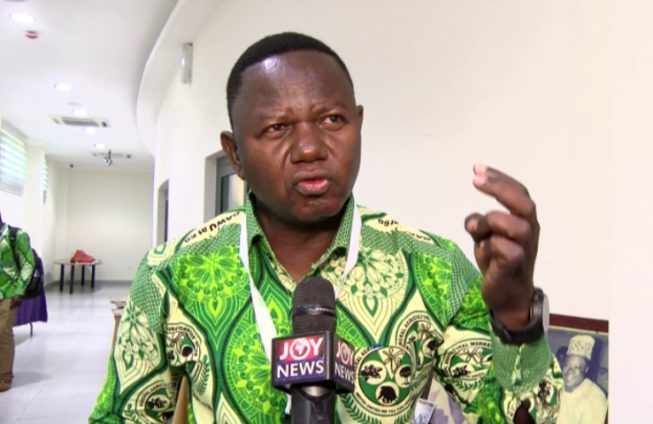
Audio By Carbonatix
The General Agricultural Workers' Union (GAWU) wants government to implement the Obaatanpa policy surgically, to the target group and on time in order to achieve its full objectives.
One of the cardinal focus of the policy is to attract educated youth into agriculture. GAWU says though the policy is a brilliant one, the agriculture sector can only benefit if a market is created for food production, whilst challenges minimized drastically.
Edward Kareweh, the General Secretary holds that there should be some arrangements to move the produce from the farm to the consumer.
“We must build strong linkages between the production and the market which should not be the concern of the youth, the young men and women who would be in agriculture that should not be their concern. Their concern should be to produce.
When you produce there is an arrangement that will allow your produce to be taken off your farm without you now going to look for a marketer to come and take it from you and that will be a good inducement,” he said.
According to him, this is to assure farmers of their money.
“This can guarantee that they will not lose their capital at the end of production and their effort and the denial and the discomfort that they will go through will not come to waste at the end of production when they fail to get market.” he added.
About Obaatanpa Programme
The Ghana CARES (Obaatan pa) programme is an unprecedented, bold and audacious GHȻ100 billion post COVID programme to stabilize, revitalize and transform Ghana’s economy to create jobs and prosperity for Ghanaians over a three-year period.
It is sequenced in two phases: a Stabilization Phase that is running from July to the end of the year (2020); and a medium-term Revitalization Phase from 2021-2023.
The first phase of the programme builds on the actions already taken by Government under the Coronavirus Alleviation Programme, including stabilization of the economy, ensuring food security, support businesses and workers, strengthening the health system and passage of legislations to facilitate quick economic recovery.
The second phase aims at revitalizing and transforming the economy from 2021-2023 will focus on supporting commercial farming and attracting educated youth into agriculture, building Ghana’s light manufacturing sector, developing engineering/machine tools and ICT/digital economy, developing Ghana’s housing and construction industry, reviewing and optimizing the implementation of Government flagships and key programmes among others.
Latest Stories
-
No NDC appointee can talk about ORAL now; what they’re doing is worse – Miracles Aboagye
25 seconds -
Teachers, parents petition Mahama over alleged bullying, mismanagement in Anloga District basic schools
11 minutes -
GPSCP Phase II injects GH¢1 million to boost Ghana’s tree crops investment drive
18 minutes -
How Black Sherif ruled Spotify Ghana’s first 5 years
48 minutes -
National Ambulance Service clarifies reports on the status of ambulance fleet
49 minutes -
KNUST opens call for creative submissions for 75th anniversary logo
50 minutes -
KCCR builds regional capacity through Luminex training for Filovirus surveillance
57 minutes -
Rotary Clubs of Accra-East, Elizabethtown donate medical equipment worth $95K to Hopewell Community Clinic
58 minutes -
Alban Bagbin calls for emergency care law over ‘no bed syndrome’ deaths
1 hour -
Black Prophet champions anti-tramadol campaign – Proceeds of ‘Sanfoka Reggae Festival’ to fund rehab centres
1 hour -
Mamprobi Polyclinic baby theft suspect charged, to reappear in court on March 4 – Police
1 hour -
Afro-Arab Group, Youth Ministry launch work-and-pay EV programme to boost youth employment
2 hours -
Government calls for united front to fix Ghana’s transport crisis
2 hours -
Celta Vigo sign Asante Kotoko winger Bernard Somuah on permanent deal until 2030
2 hours -
Stanford takes interest in Ghana’s Mobile Autopsy Model for global health innovation
2 hours

